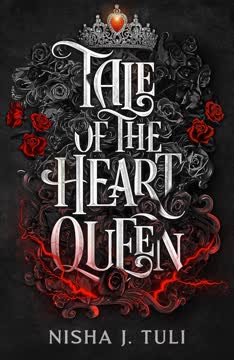Plot Summary
Poisoned Tunnels, Broken Trust
The Thirty-Seventh and Twenty-Ninth Legions, led by Marcus and Hostus, lay siege to Hydrilla, the last rebel stronghold in Bardeen. A tunnel assault ends in disaster when the Bardenese unleash poisonous smoke, killing many young legionnaires. Marcus, the prodigy commander, faces the cold reality of war and the callousness of his superiors, especially the vain Proconsul Grypus and the sadistic Hostus. The loss weighs heavily on Marcus, who is forced to balance the demands of his superiors with the lives of his men. The siege drags on, and the legions grow restless, hungry, and divided, with the threat of winter looming and the cost of glory mounting.
Commanders and Cowards
Marcus and his officers, including the irreverent Agrippa, navigate the toxic politics of the camp. Grypus demands victory at any cost, while Hostus schemes for personal gain. The Thirty-Seventh, a legion of boys barely men, are used as expendable labor and cannon fodder. Agrippa's humor masks his anxiety about the future, and his loyalty to Marcus is tested by the cruelty of their situation. The men are forced to police the starving civilian camp, where disease and death are rampant. The bonds of brotherhood are all that keep despair at bay, as the threat of mutiny and desertion simmers beneath the surface.
A Rebel's Gamble
Silvara, a laundress and secret rebel, is tasked with infiltrating the legion camp to gather intelligence. Her family is trapped in Hydrilla, and she is desperate to save them. The rebel leaders, Carina and Hecktor, pressure her to seduce or assassinate Marcus, but her attempt fails. Silvara's frustration grows as she is dismissed as weak, but her resolve hardens. She dreams of fighting, not spying, and resents being used as a pawn. The rebels' hope fades as the siege drags on, and Silvara's sense of helplessness deepens, fueling her determination to make a difference.
Laundry, Laughter, and Lies
Agrippa's chance encounter with Silvara at the river leads to a flirtatious, awkward friendship. He helps her with her chores, and their banter reveals a mutual attraction. Silvara is wary, knowing the danger of getting close to an enemy, but Agrippa's charm and vulnerability disarm her. Their interactions are watched by both legionnaires and rebels, each with their own agendas. Agrippa's longing for connection is palpable, and Silvara's desire for agency grows. Their budding relationship becomes a fragile thread of hope in a world defined by violence and suspicion.
Brawls and Brotherhood
A brawl between the Thirty-Seventh and the Twenty-Ninth over Silvara leads to public punishment. Agrippa, defending Silvara from Carmo's predatory advances, is whipped alongside his friends. Marcus is forced to discipline his men to maintain order, even as he sympathizes with their motives. The incident deepens the rift between the legions and exposes the brutality of Hostus's rule. The Thirty-Seventh's unity is both their strength and their vulnerability, as Marcus struggles to protect them from external threats and internal dissent. The cost of loyalty becomes painfully clear.
The Weight of Hunger
Silvara and the followers face starvation as winter approaches. Agnes, the elderly laundress, becomes a symbol of resilience and loss. Silvara gives away her precious food to others, embodying the selflessness that contrasts with the legions' harsh pragmatism. The suffering of the civilians is ignored by the commanders, and the divide between soldier and follower grows. Silvara's guilt over Agnes's death is compounded by her inability to save her family. The cold, hunger, and grief strip away illusions, leaving only the raw struggle to survive.
Games of Power
Marcus is drawn into Grypus's political machinations, forced to secure the Thirty-Seventh's autonomy by promising victory. He negotiates with Hostus, risking his life to outmaneuver his rival. Agrippa and Marcus's relationship is strained by old wounds and new responsibilities. The rebels, desperate for any advantage, plot to sow discord between the legions by leaking rumors. Silvara, caught between loyalty to her people and her feelings for Agrippa, becomes a reluctant agent of chaos. The stage is set for betrayal and bloodshed.
Forbidden Warmth
Agrippa and Silvara's relationship deepens, offering solace amid the horrors of war. They share stolen moments of intimacy, confessions, and dreams of a different life. Their love is forbidden by legion law and threatened by the secrets they keep from each other. Agrippa's sense of duty to his brothers wars with his desire to protect Silvara. Silvara, torn by guilt and longing, struggles to reconcile her role as a spy with her growing affection for Agrippa. Their connection becomes both a sanctuary and a source of impending tragedy.
Death in the Woods
A patrol led by Agrippa is ambushed by a trap set by the Twenty-Ninth in retaliation for the brawl. Yaro, Agrippa's closest friend, is mortally wounded and dies in his arms. The loss devastates the Thirty-Seventh, fueling rage and a thirst for vengeance. Agrippa's grief and guilt threaten to consume him, and his faith in the legion's brotherhood is shaken. The incident exposes the rot at the heart of the Empire's war machine, where ambition and cruelty outweigh honor and loyalty. The cost of survival grows ever steeper.
Fury Unleashed
Agrippa's fury at Yaro's death nearly sparks open war between the legions. Marcus intervenes, risking his own safety to prevent bloodshed. Hostus's sadism and Carmo's brutality are laid bare, and the Thirty-Seventh's patience wears thin. The threat of mutiny looms as Marcus is forced to choose between justice and survival. The bonds of brotherhood are tested to their limits, and the line between friend and foe blurs. The camp becomes a powder keg, with only Marcus's leadership holding disaster at bay.
The Cost of Command
Marcus is brutally beaten by Hostus after rumors of his ambition are leaked by the rebels. He hides his injuries, relying on Agrippa and Felix to keep the legion together. The truth of Marcus and Agrippa's shared past at Lescendor surfaces, revealing the scars of rivalry and forced loyalty. Marcus's willingness to suffer for his men cements their devotion, but also isolates him. The burden of command is crushing, and the price of victory is measured in blood and betrayal. The Thirty-Seventh prepares for the final assault, knowing not all will survive.
Night of Grief
Agrippa and Silvara find comfort in each other's arms on the eve of battle, sharing warmth and vulnerability. Their love is a brief respite from the encroaching storm, but the knowledge of what is to come hangs over them. Silvara's guilt over her divided loyalties grows, and Agrippa's fear of losing her is matched by his sense of duty. The night is filled with memories of the dead, regrets for what might have been, and the desperate hope for a future beyond war. The world outside is cold and unforgiving, but for a moment, they are safe together.
Cold Comforts
The followers' camp is ravaged by cold, and many die, including Agnes. Agrippa leads the burial, providing firewood and food for the survivors. Silvara mourns Agnes and confronts the reality of her own powerlessness. The legion's small acts of kindness stand in stark contrast to the Empire's indifference. The lines between enemy and ally blur as shared suffering breeds empathy. Silvara's resolve to fight for her people hardens, even as her heart breaks for Agrippa. The cost of compassion is high, but it is the only thing that endures.
The Siege Begins
Marcus and Agrippa execute a bold plan to infiltrate Hydrilla through a new tunnel, using noise and misdirection to mask their true intent. The rebels, misled by rumors and false signals, are caught off guard. The Thirty-Seventh prepares for a desperate assault, knowing the odds are against them. Silvara, realizing the attack is imminent, tries to warn the rebels, but it is too late. The final battle looms, and the fate of Hydrilla—and everyone within—hangs in the balance.
The Tunnel's Secret
Agrippa leads a handpicked team through the tunnel, emerging inside Hydrilla and attacking from the rear. The fighting is brutal and chaotic, with no quarter given. Agrippa's men fall one by one, but they succeed in opening the way for the legion. The rebels are overwhelmed, and the city's defenses collapse. The cost is staggering, and the line between hero and villain blurs. Agrippa's actions, driven by loyalty and necessity, will haunt him and Silvara forever.
Betrayal and Blood
Silvara learns that Agrippa led the assault that killed her father and destroyed her home. Consumed by grief and rage, she confronts him at the river, torn between love and vengeance. Carina and the rebels force her to choose, and in a moment of anguish, she rejects Agrippa, sending him to his doom in the river's deadly current. Their love, forged in the fires of war, is undone by the very loyalties that once bound them. The personal and the political collide, leaving only heartbreak in their wake.
The Fall of Hydrilla
Hydrilla falls to the legions, and Grypus orders a massacre of the survivors. Marcus, powerless to stop the slaughter, is forced to choose between his conscience and his duty. The Thirty-Seventh is granted autonomy, but the price is paid in blood and guilt. Hostus is finally stripped of power, but the Empire's cruelty endures. Silvara, bereft and hunted, flees into exile, vowing to fight on. The cost of victory is revealed to be unbearable, and the promise of glory is exposed as a lie.
Choices and Consequences
Agrippa, presumed dead, is swept through a xenthier path to a distant, unknown land. Marcus, forced to brand his friend a deserter to protect the legion, is left haunted by regret. Silvara, now a fugitive, takes up Agrippa's sword as a symbol of resistance. The Thirty-Seventh marches on to new conquests, their freedom won at a terrible price. The survivors are left to grapple with the consequences of their choices, the scars of love and war, and the uncertain hope of redemption.
Exile and Endings
Agrippa awakens in a strange land, healed by mysterious powers and surrounded by unknown people. The pain of loss and betrayal lingers, but the possibility of a new life beckons. Silvara, carrying the memory of their love and the weight of her actions, resolves to fight for freedom in Bardeen. Marcus, burdened by guilt and responsibility, leads the Thirty-Seventh into an uncertain future. The story ends with the promise that even in exile, hope and resistance endure, and that the struggle for meaning and redemption is never truly over.
Characters
Marcus
Marcus is the brilliant, young legatus of the Thirty-Seventh, renowned for his strategic genius and icy composure. Raised in the brutal system of Campus Lescendor, he is both a product and a critic of the Empire's cruelty. His relationship with Agrippa is fraught—once rivals, now bound by mutual respect and old wounds. Marcus's leadership is defined by sacrifice: he endures humiliation, violence, and isolation to protect his men, often at the expense of his own well-being. His psychoanalysis reveals a man haunted by guilt, desperate to do right in a system that rewards only power. Marcus's arc is one of increasing isolation, as the cost of command strips away his humanity, leaving him both revered and alone.
Agrippa
Agrippa is the Thirty-Seventh's primus, a charismatic risk-taker whose humor masks deep insecurity and longing for significance. Half Bardenese, half Cel, he is an outsider in both worlds, seeking belonging among his brothers. His rivalry with Marcus is rooted in childhood trauma, and his loyalty is both a strength and a curse. Agrippa's relationship with Silvara awakens his vulnerability, forcing him to confront the contradictions of love and duty. His development is marked by loss—of friends, innocence, and ultimately, his place in the world. Agrippa's journey is a tragic one, as his choices lead to both heroism and heartbreak, culminating in exile and the hope of redemption.
Silvara
Silvara is a laundress and secret rebel, driven by love for her family and a fierce desire for agency. Her beauty and intelligence make her a valuable asset, but she resents being used as a pawn. Silvara's relationship with Agrippa is fraught with danger and longing, as she is forced to choose between her people and her heart. Her psychoanalysis reveals a young woman struggling to define herself in a world that denies her power. Silvara's arc is one of painful growth, as she learns the cost of betrayal and the limits of forgiveness. Her final choice—to reject Agrippa and embrace resistance—marks her as both victim and survivor.
Hostus
Hostus is the ruthless commander of the Twenty-Ninth, a master manipulator who rules through fear and violence. His relationship with Marcus is predatory, seeing the young legatus as both tool and threat. Hostus's psychoanalysis reveals a man consumed by ambition and cruelty, devoid of empathy. He is the personification of the Empire's darkest impulses, using power to destroy rather than protect. Hostus's downfall is inevitable, but his legacy of pain endures, leaving scars on all who cross his path.
Grypus
Grypus is the Senate's representative, obsessed with glory and self-indulgence. He manipulates Marcus and Hostus, caring nothing for the lives lost in pursuit of his ambitions. Grypus's psychoanalysis reveals a man driven by insecurity and a desperate need for validation. His relationship to the other characters is transactional—he uses them as stepping stones to power. Grypus's decisions set the stage for tragedy, and his lack of conscience makes him a true villain of the story.
Felix
Felix is Marcus's closest friend and second-in-command, a steady presence amid chaos. His loyalty to Marcus is unwavering, and he often serves as the voice of conscience and caution. Felix's psychoanalysis reveals a man who values honor and brotherhood, but who is also haunted by the violence he witnesses. His relationship with Agrippa is competitive but respectful, and his devotion to the Thirty-Seventh is absolute. Felix's development is subtle, marked by quiet acts of courage and compassion.
Carina
Carina is a fierce, pragmatic leader of the Bardenese rebels, willing to use anyone—including Silvara—to achieve her goals. Her relationship with Silvara is manipulative, seeing the younger woman as a tool rather than a comrade. Carina's psychoanalysis reveals a woman shaped by trauma, her empathy eroded by years of war. She is both mentor and antagonist, embodying the moral ambiguities of resistance. Carina's actions drive much of the plot's betrayal and tragedy.
Yaro
Yaro is Agrippa's oldest friend, a source of humor and loyalty within the Thirty-Seventh. His death is a turning point, exposing the fragility of brotherhood and the randomness of violence. Yaro's psychoanalysis reveals a young man who finds meaning in camaraderie, but who is ultimately powerless against the machinery of war. His loss haunts Agrippa and the legion, symbolizing the personal cost of conflict.
Gibzen
Gibzen is a centurion in the Thirty-Seventh, known for his skill in violence and lack of empathy. His relationship with Agrippa and Marcus is transactional, serving as both tool and potential traitor. Gibzen's psychoanalysis reveals a man shaped by the Empire's brutality, his humanity eroded by years of killing. He is a reminder that not all brothers are friends, and that the line between ally and enemy is thin.
Agnes
Agnes is the heart of the followers' camp, a source of wisdom and comfort for Silvara. Her death marks the end of innocence and the triumph of hardship. Agnes's psychoanalysis reveals a woman who endures through kindness, her strength found in small acts of care. She is a symbol of the costs borne by the powerless, and her loss is deeply felt by all who knew her.
Plot Devices
Dual Perspectives and Rotating Narrators
The novel alternates between Marcus, Agrippa, and Silvara, offering intimate access to their thoughts, fears, and desires. This structure allows the reader to experience the same events from conflicting perspectives, heightening the sense of moral ambiguity and emotional complexity. The shifting viewpoints also serve to foreshadow betrayals and reveal secrets, as each character withholds or distorts information. The result is a tapestry of unreliable narrators, where truth is always in question and empathy is extended even to those who do harm.
Brotherhood and Betrayal
The theme of brotherhood is central, with the Thirty-Seventh's unity contrasted against the Empire's culture of exploitation. Loyalty is tested by external threats (Hostus, Grypus, the Twenty-Ninth) and internal divisions (rivalry, grief, forbidden love). Betrayal—whether personal or political—drives the plot, as characters are forced to choose between self-preservation and solidarity. The consequences of these choices ripple outward, shaping the fate of individuals and the legion as a whole.
Foreshadowing and Irony
The narrative is laced with foreshadowing, from the opening scenes of poisoned tunnels to the repeated warnings about winter and betrayal. Irony abounds: the quest for glory leads to ruin, love becomes a weapon, and victory brings only loss. The use of dramatic irony—where the reader knows more than the characters—heightens tension, especially in the doomed romance between Agrippa and Silvara. The final twist, with Agrippa's exile through the xenthier, is both a literal and metaphorical journey into the unknown.
Symbolism and Motifs
The redwoods symbolize both the endurance of the Bardenese and the destruction wrought by the Empire. Tunnels represent both escape and entrapment, as characters seek freedom but are often buried by their choices. Tattoos mark identity and belonging, but also serve as reminders of the characters' lack of agency. These motifs recur throughout the novel, reinforcing themes of loss, resistance, and the search for meaning.
Analysis
Tarnished Empire is a searing exploration of the costs of power, loyalty, and love in a world defined by violence and oppression. Through its rotating perspectives and intimate character studies, the novel exposes the moral ambiguities of war, where heroism and villainy are often indistinguishable. The story interrogates the nature of leadership, showing how even the most brilliant and compassionate commanders are complicit in systems of cruelty. The forbidden romance between Agrippa and Silvara serves as both a microcosm of the larger conflict and a critique of the ways in which personal desires are sacrificed on the altar of duty. The novel's use of foreshadowing and irony underscores the futility of seeking glory in a world that rewards only brutality. Ultimately, Tarnished Empire is a meditation on the possibility of redemption amid ruin, suggesting that even in exile and defeat, the struggle for meaning and justice endures. The lessons are clear: power corrupts, love is never simple, and the true cost of survival is measured not in victories, but in the scars we carry and the choices we make.
Last updated:
Review Summary
Tarnished Empire is a prequel to the Dark Shores series, focusing on Marcus and introducing new characters like Agrippa and Silvara. Readers praise the fast-paced action, political intrigue, and character development. Many consider it the best book in the series, with Agrippa emerging as a fan favorite. The story provides valuable backstory and enhances the overall Dark Shores experience. While some felt it could be read independently, others recommend reading it in publication order. Most reviewers eagerly anticipate the next installment, Gilded Serpent.



















